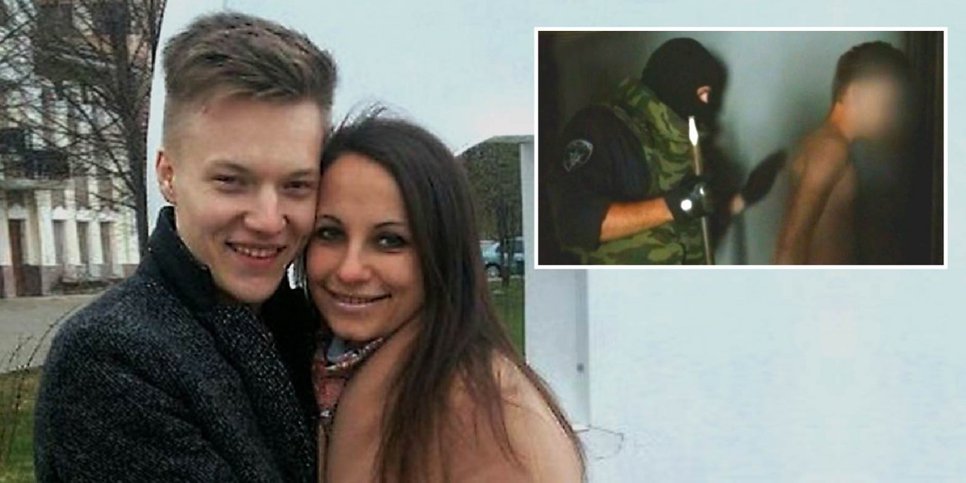Photo: Valeria and Sergey Rayman
Photo: Valeria and Sergey Rayman
The Court of Appeal in Kostroma upheld the right of young spouses to worship Jehovah God without fear of criminal prosecution
Kostroma RegionOn November 14, 2019, the Kostroma Regional Court approved the decision of the district court to return the criminal case to the prosecutor's office. Valeria and Sergey Rayman are innocent. The shocking footage of the storming of their apartment, which was circulated by the media in July 2018, remained evidence of the suffering experienced by believers.
On September 25, 2019, the Sverdlovsk District Court of Kostroma decided to return the criminal case to the prosecutor's office. At the same time, the court emphasized that in the case of spouses "there is a legal right to practice the religion of Jehovah's Witnesses, which has not been prohibited."
Valeria and Sergey Rayman were accused of continuing the activities of the local religious organization of Jehovah's Witnesses, banned by the decision of the Supreme Court. However, on September 25, the Kostroma court pointed to the "vague" wording of the indictment. Neither in the materials of the criminal case, nor in the register of legal entities, nor in any other documents, there is no confirmation that the young spouses were founders or members of a local religious organization in Kostroma.
The prosecution unfoundedly pointed out that the Rayman couple held meetings of a religious organization, but at the same time did not cite a single name of the participants in such meetings - the defense of believers drew attention to this. The indictment also does not indicate the consequences of the actions of the Ryman spouses and the methods of committing the "crime".
The court found no evidence of intent to commit a crime in the investigation documents. At the same time, the court referred to Resolution No. 11 of the Plenum of the Supreme Court of Russia of June 28, 2011 "On Judicial Practice in Criminal Cases on Crimes of an Extremist Nature", which clearly states: "The crime provided for in Article 282 of the Criminal Code of the Russian Federation is committed only with direct intent and with the aim of inciting hatred or enmity, as well as humiliating the dignity of a person or a group of persons on the basis of gender, race, nationality, language, origin, attitude to religion, membership in any social group."
The court pointed out that "in this case, there is a legal right to profess the religion of Jehovah's Witnesses, which was not prohibited by the decision of the Supreme Court of the Russian Federation of 20.04.2017." "Despite the fact that the Supreme Court of the Russian Federation in its decisions has repeatedly pointed out that the practice of the religion of Jehovah's Witnesses on the territory of the Russian Federation is not prohibited by law, they are not deprived of the opportunity to independently practice religious cults," the court ruling, which has not yet entered into force, says.
Despite this position, the court left Valeria and Sergey Rayman under recognizance not to leave. The couple still face up to 10 years in prison.
The nightmare for the young family began in the early morning of July 25, 2018, when, during a series of searches in Kostroma , armed special forces, using crowbars, broke down the door to their apartment. After the search of the spouses was detained, Valeriya spent 2 days under arrest and another 179 days under the ban on certain actions. Sergey spent 59 days under arrest, part of this period in a cramped solitary confinement cell, 30 days under house arrest and another 90 days under the prohibition of certain actions. All this time, it was impossible for the spouses to lead a full life, including communicating with each other.
The religion of Jehovah's Witnesses in Russia is indeed not prohibited.


